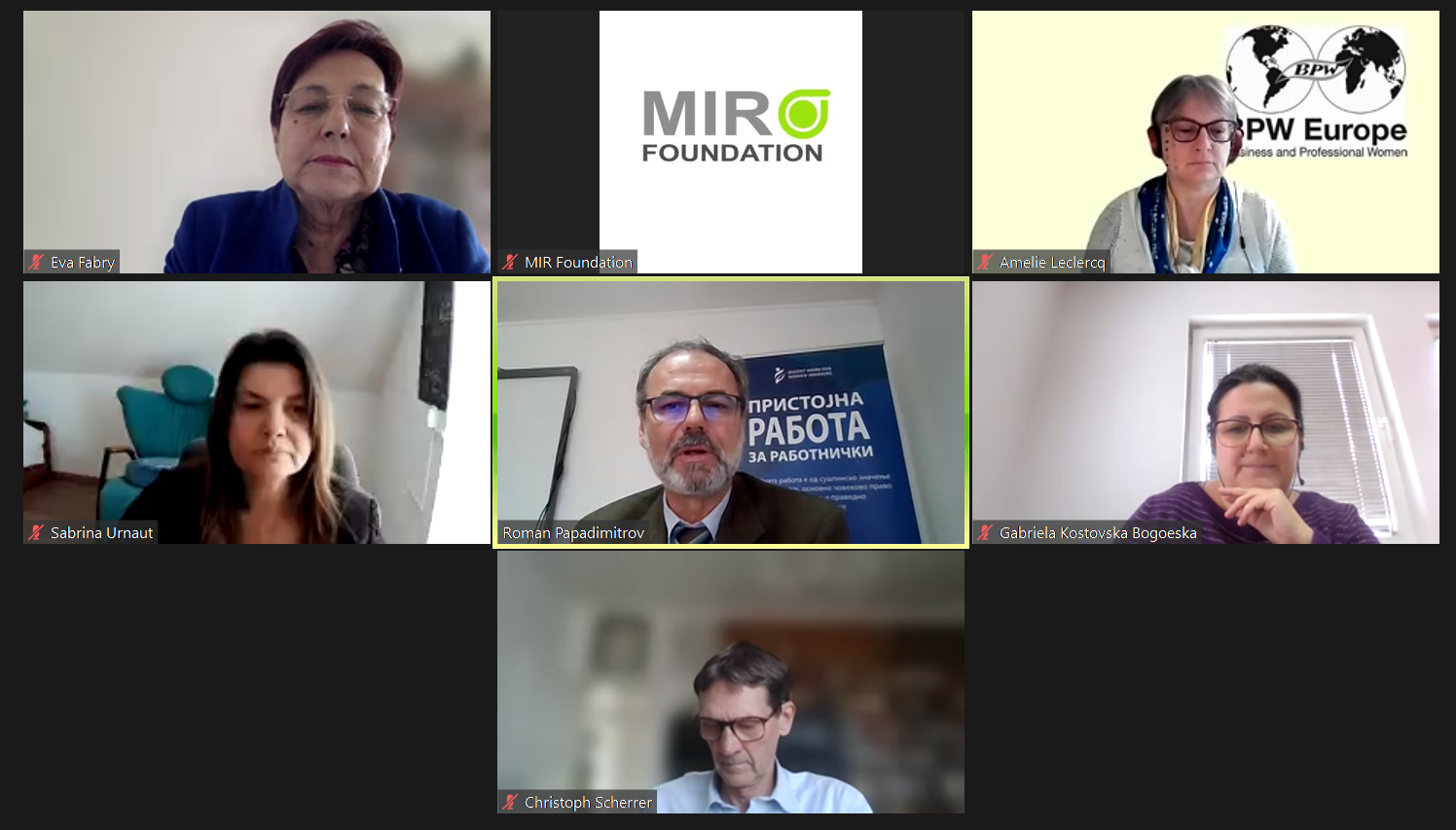Online forum: “Decent work for women workers – European experiences and good practices”
In the dynamic happenings of gender equality and workplace empowerment, a significant virtual gathering recently unfolded, sparking meaningful discussions and exchanging invaluable insights. Organized within the framework of the project “Decent Work for Women Workers – Social participation and empowerment,” the online forum, titled “Decent work for women workers – European experiences and good practices”, which convened on March 27, 2024, successfully facilitated the exchange of practices and cooperation among stakeholders dedicated to advancing the cause of decent work for women workers.
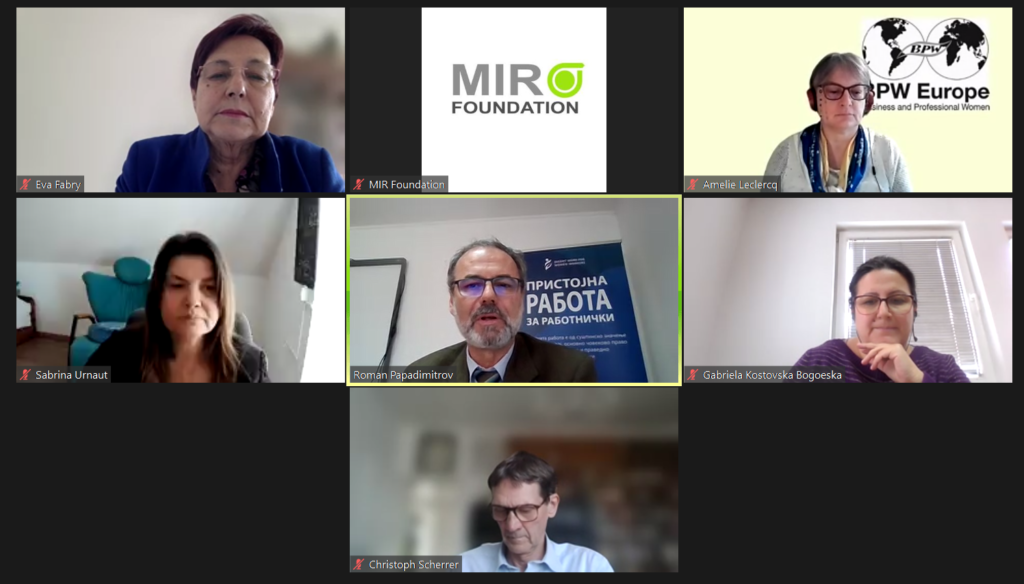
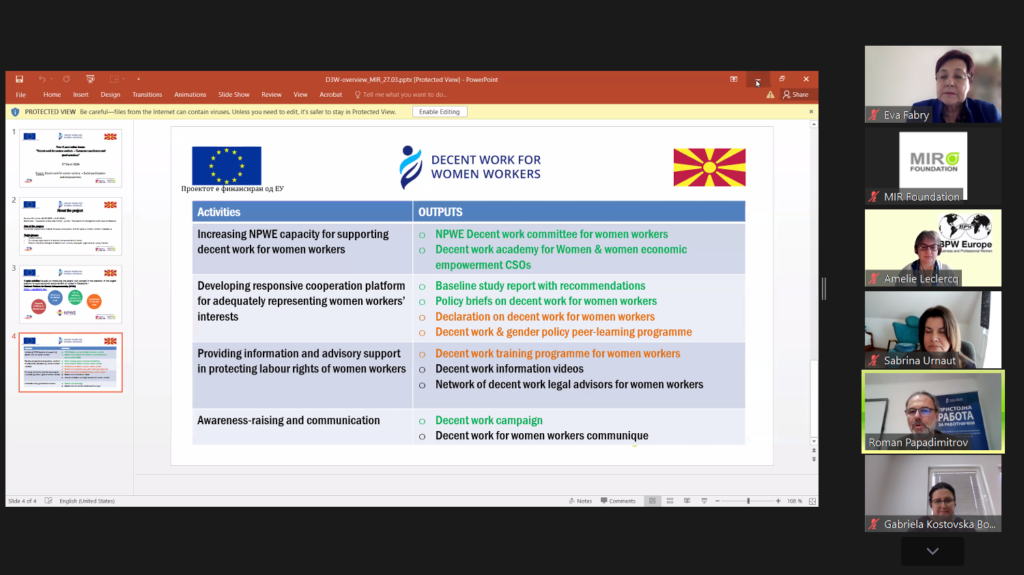
Organized by the Foundation for Management and Industrial Research (MIR) and the Association of Business Women, this initiative, supported by the European Union, aimed to foster social participation and elevate the rights of women workers in Macedonia. The forum not only demonstrated the dedication of its organizers but also symbolized a collective commitment to driving meaningful change in the spheres of gender equality and labor rights.
Representing a variety of organizations, speakers shared their experiences and strategies for improving working conditions for women. Each speaker brought forth a unique perspective, shedding light on various facets of the ongoing battle for gender equality in the workplace.
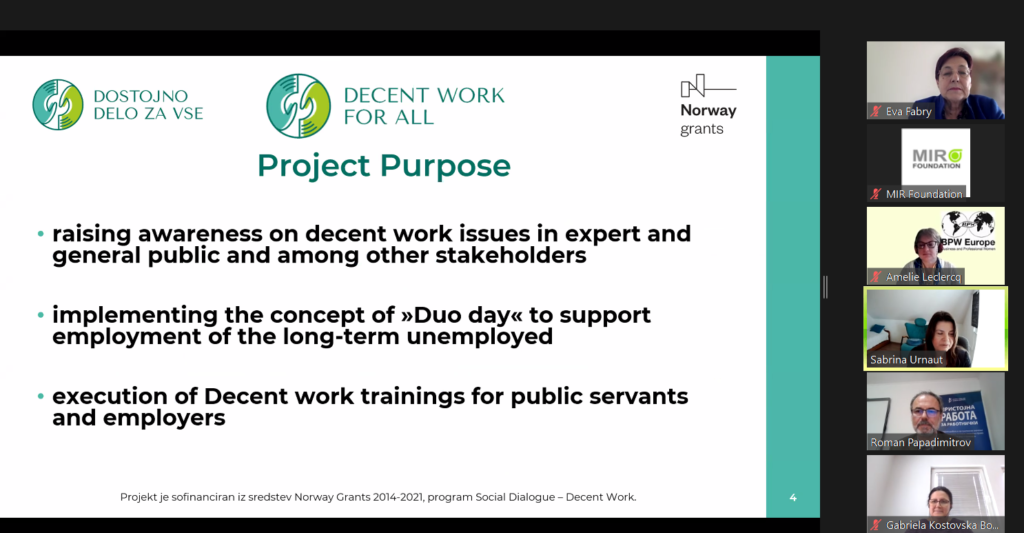
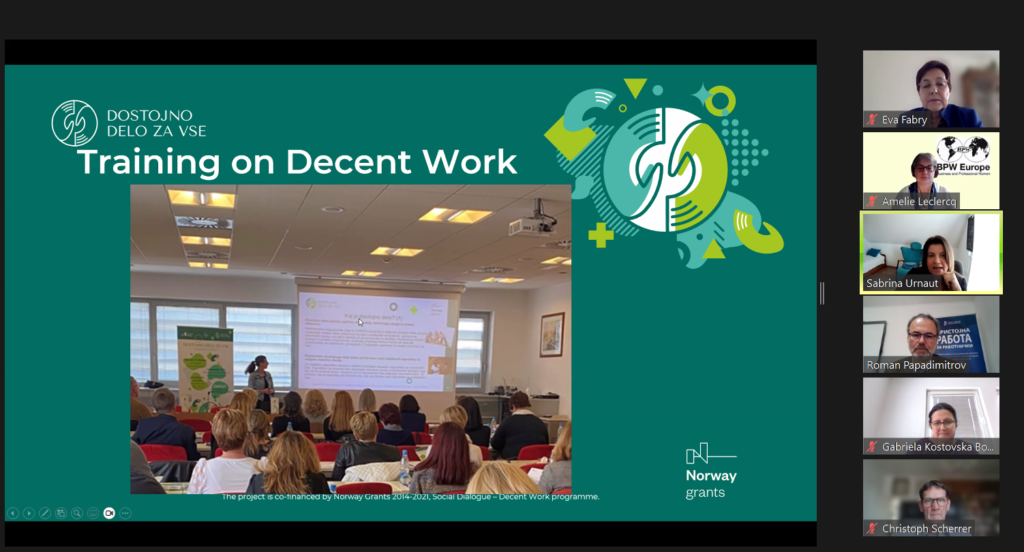
Sabrina Urnaut, representing the Employment Service of Slovenia unveiled their initiative, the Social Dialogue Program – Decent Work for All. This transformative project endeavors to not only raise awareness among experts and the general public but also among stakeholders. Urnaut highlighted the multifaceted approach of the program, including the implementation of innovative concepts like the ‘Duo Day’ to bolster employment opportunities for the long-term unemployed. Through Decent Work trainings and a comprehensive media campaign, the project aims to foster a culture of inclusivity and equality in Slovenia’s workforce.
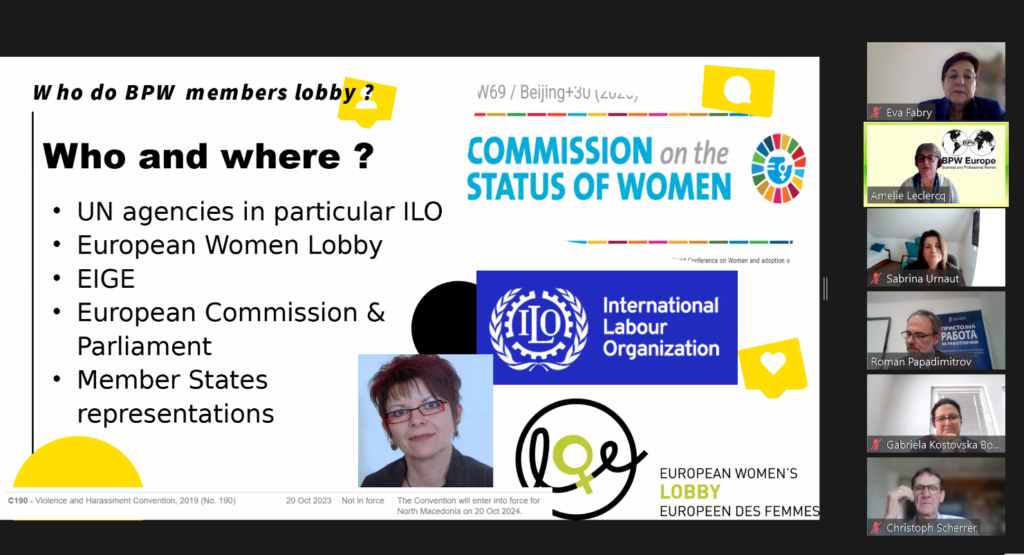
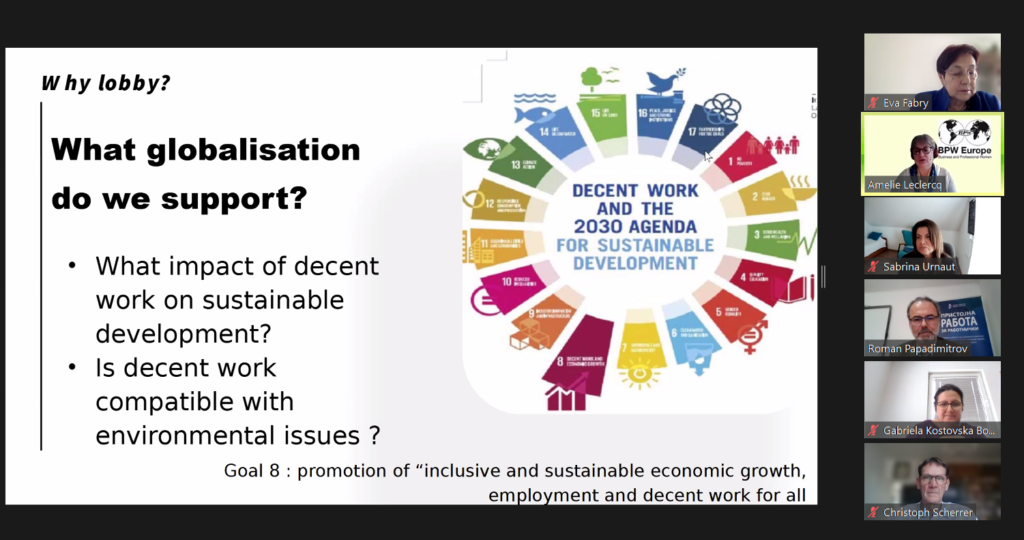
Following Urnaut’s compelling narrative, Amélie Leclercq of Business & Professional Women Europe (BPW Europe) took the stage to accent the organization’s fervent lobbying for Decent Work. Leclercq delved into the intricacies of BPW Europe’s lobbying efforts, highlighting their engagements with influential bodies such as the United Nations agencies and the European Commission. With a keen focus on pressing issues like decent schedules, fair pay, and combatting harassment in the workplace, Leclercq sparked a conversation around the intersectionality of decent work and the climate crisis, emphasizing the disproportionate impact on marginalized communities – including women.
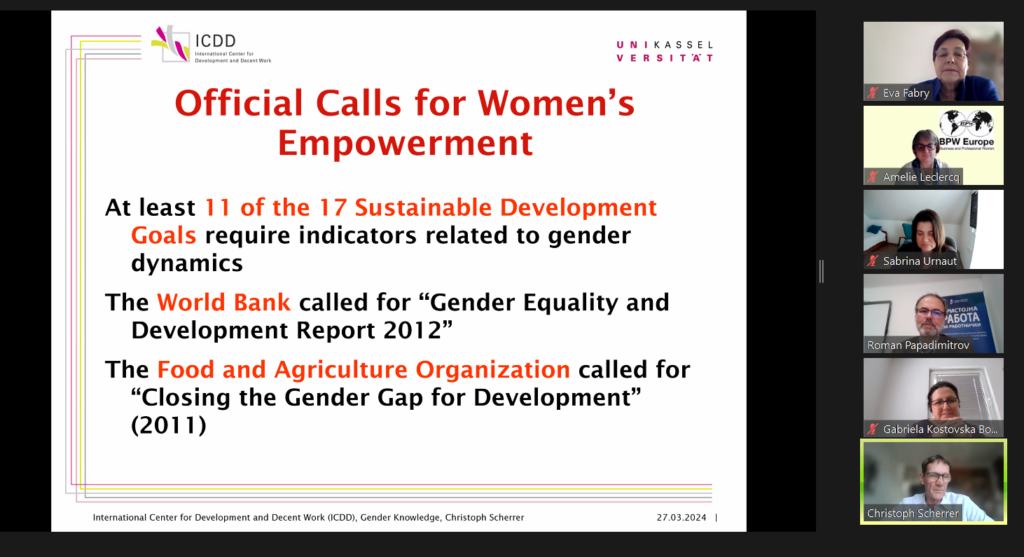
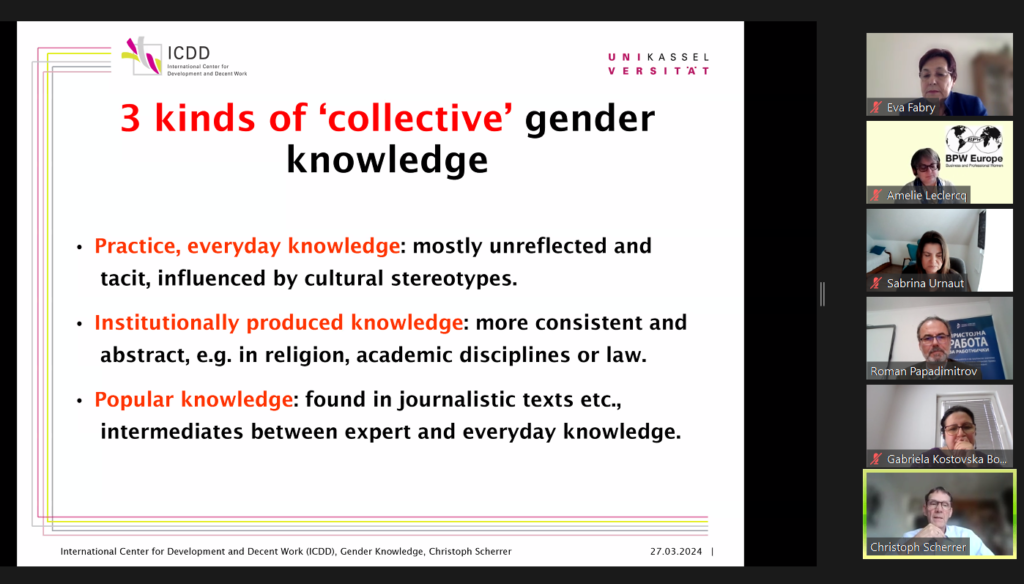
The discourse then shifted to Prof. Dr. Christoph Scherrer from the University of Kassel, Germany, who provided a thought-provoking analysis of gender dynamics in agriculture. Scherrer unraveled the paradoxical plight of women in agriculture, who despite bearing the brunt of labor, often find themselves marginalized in decision-making processes. Through his compelling narrative, Scherrer highlighted the urgent need for systemic reforms to dismantle these gender disparities in the agricultural sector.
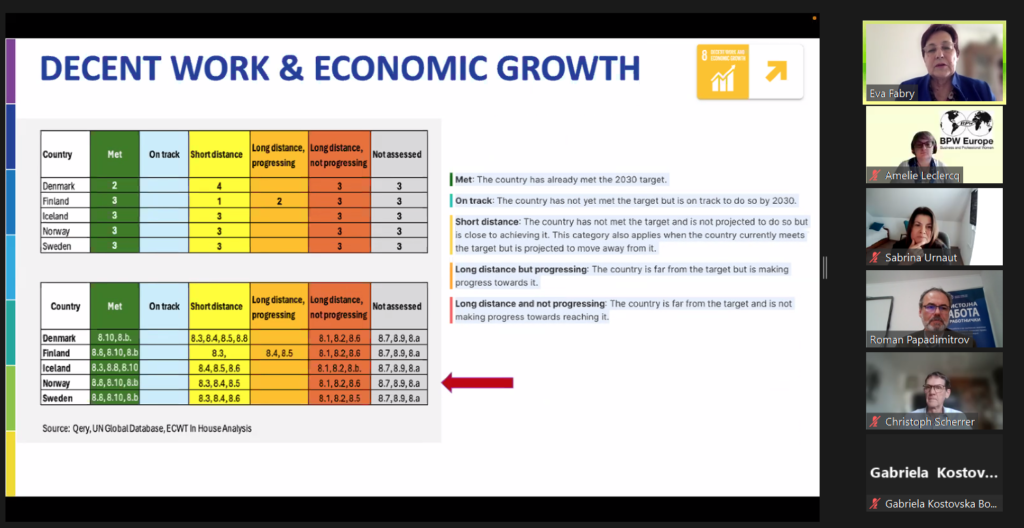
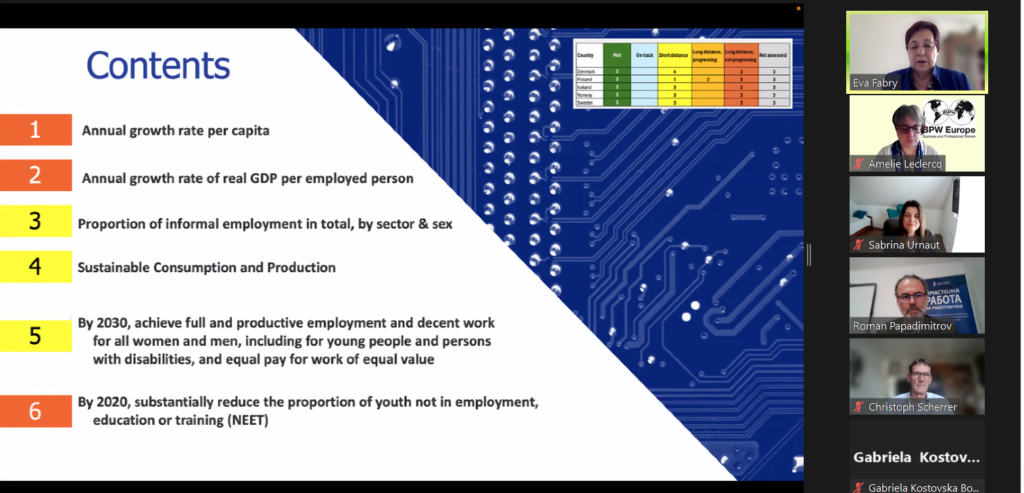
Rounding off the forum, Eva Fabry of the European Centre for Women and Technology (ECWT) shared insights into the Nordic region’s exemplary strides in securing decent work conditions for women workers. With a slew of progressive policies ranging from parental leave to flexible work arrangements, the Nordics serve as a beacon of hope in the pursuit of gender equality. Fabry’s presentation of projects like Women4IT and TRIPLOD highlighted the region’s unwavering commitment to empowering women in all spheres of life.
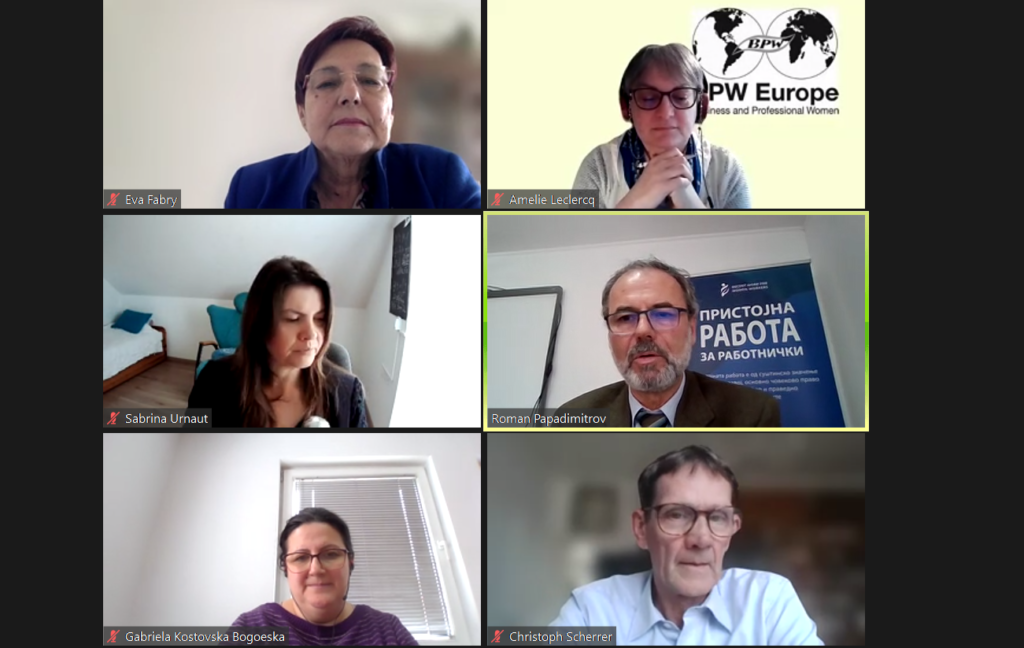
Following their presentations, the speakers engaged with the audience, fielding questions and offering insightful feedback. By the moderation of Roman Papadimitrov, the event seamlessly navigated through discussions, fostering an atmosphere of collaboration and shared learning.
All in all, he forum offered an excellent opportunity for networking, peer learning and sharing good practices in order to drive meaningful change in the spheres of gender equality and labour rights.

